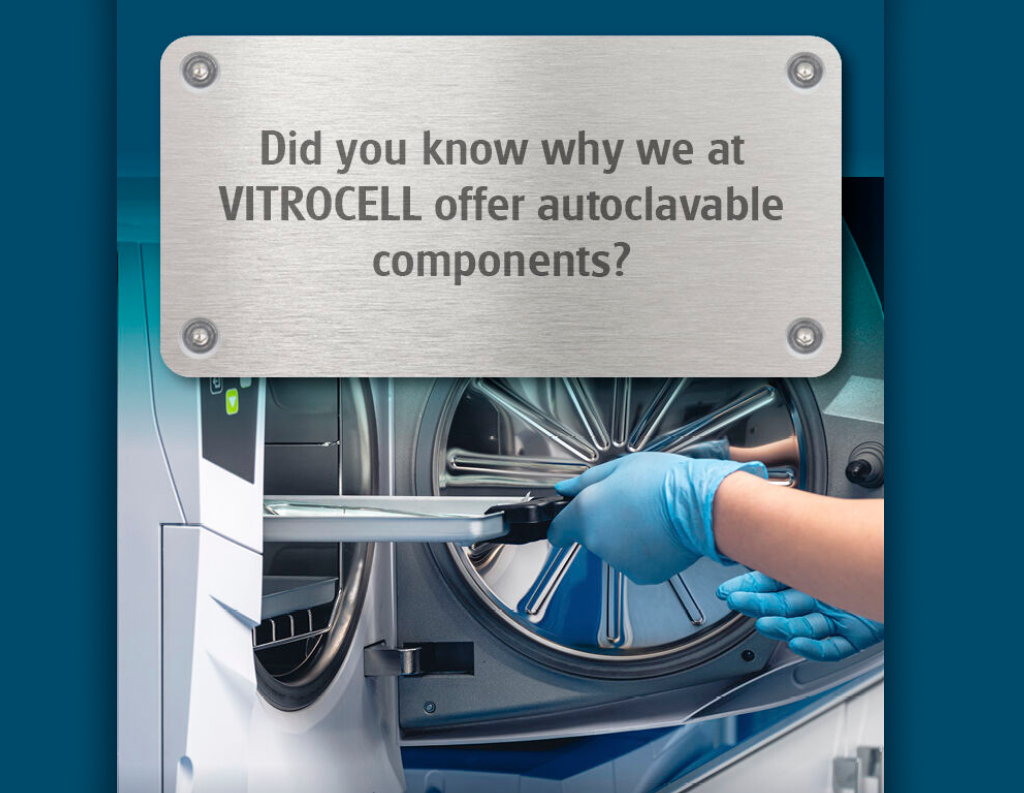
In day-to-day use, decontamination with e.g. ethanol is typically sufficient for components that come into contact with cell cultures and media. However, when dealing with severe contamination risks or working with virus-infected cells, autoclaving becomes essential to ensure sterility and safety for the operator and to prevent carry over of biological relevant material from one experiment to the other.
At VITROCELL, we understand the demands of advanced in vitro research. That’s why our aerosol-guiding parts as well as the parts that come into contact with cell cultures and media are engineered for durability and autoclavability, providing an extra layer of assurance.
Why does this matter? Unlike other products on the market, VITROCELL components combine precision engineering with practical features like autoclavability – empowering researchers to maintain sterility and protect the integrity of their studies.
As leaders in in vitro exposure systems, we are committed to offering innovative solutions that prioritize your research success and safety.
Learn more about our advanced systems and how they support your work in inhalation research.